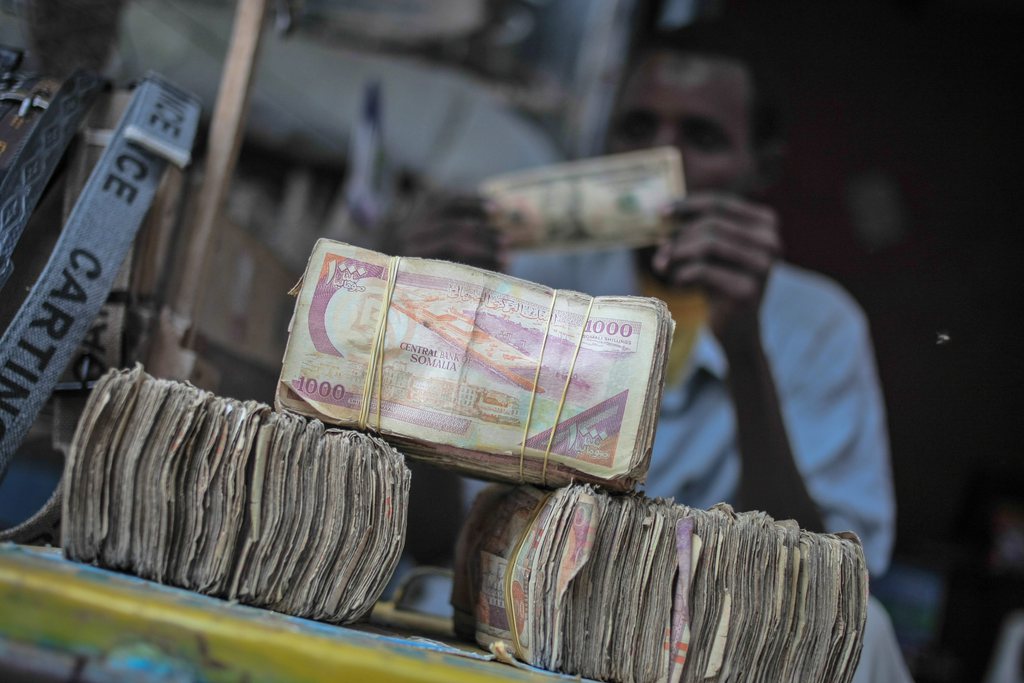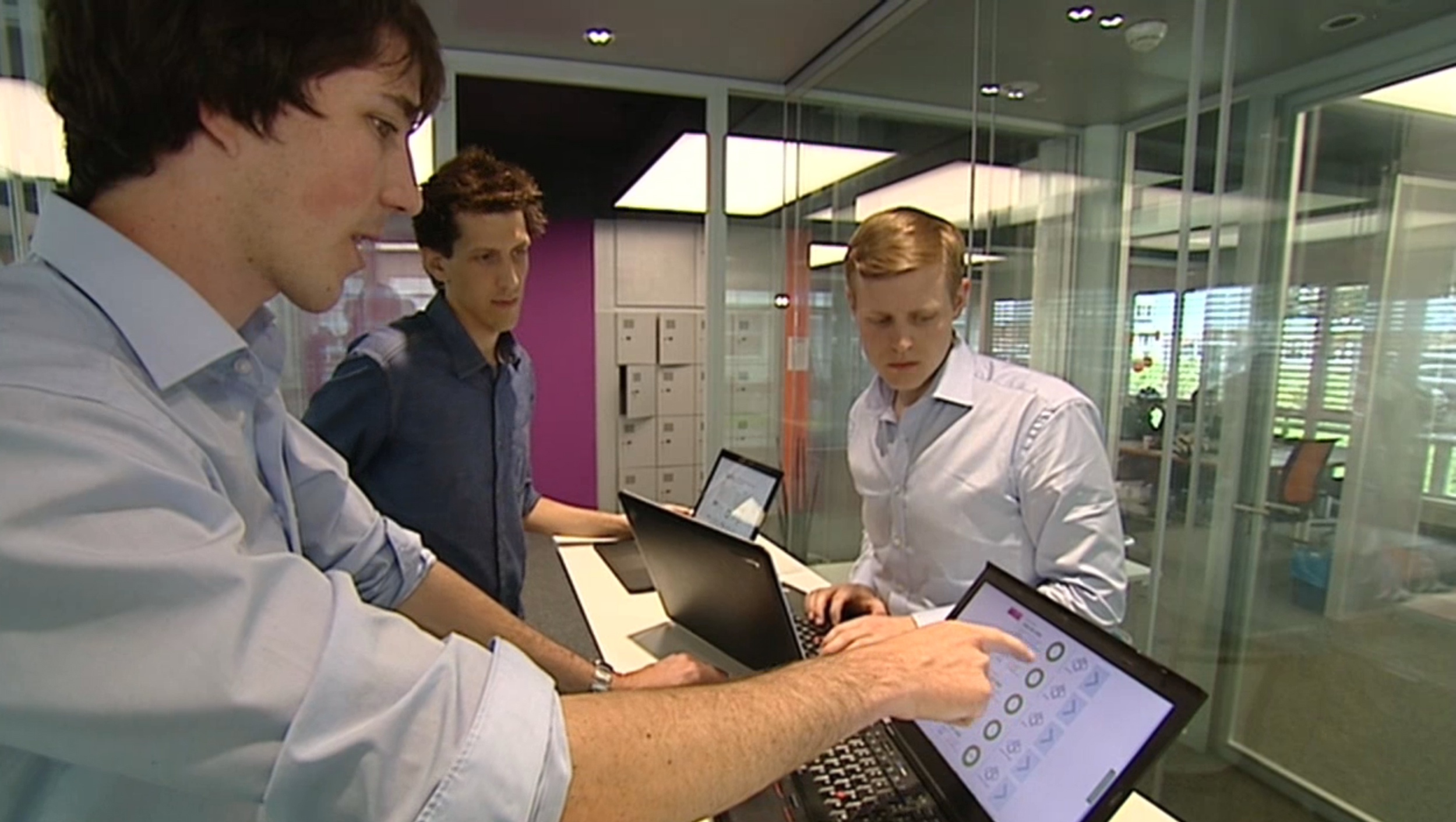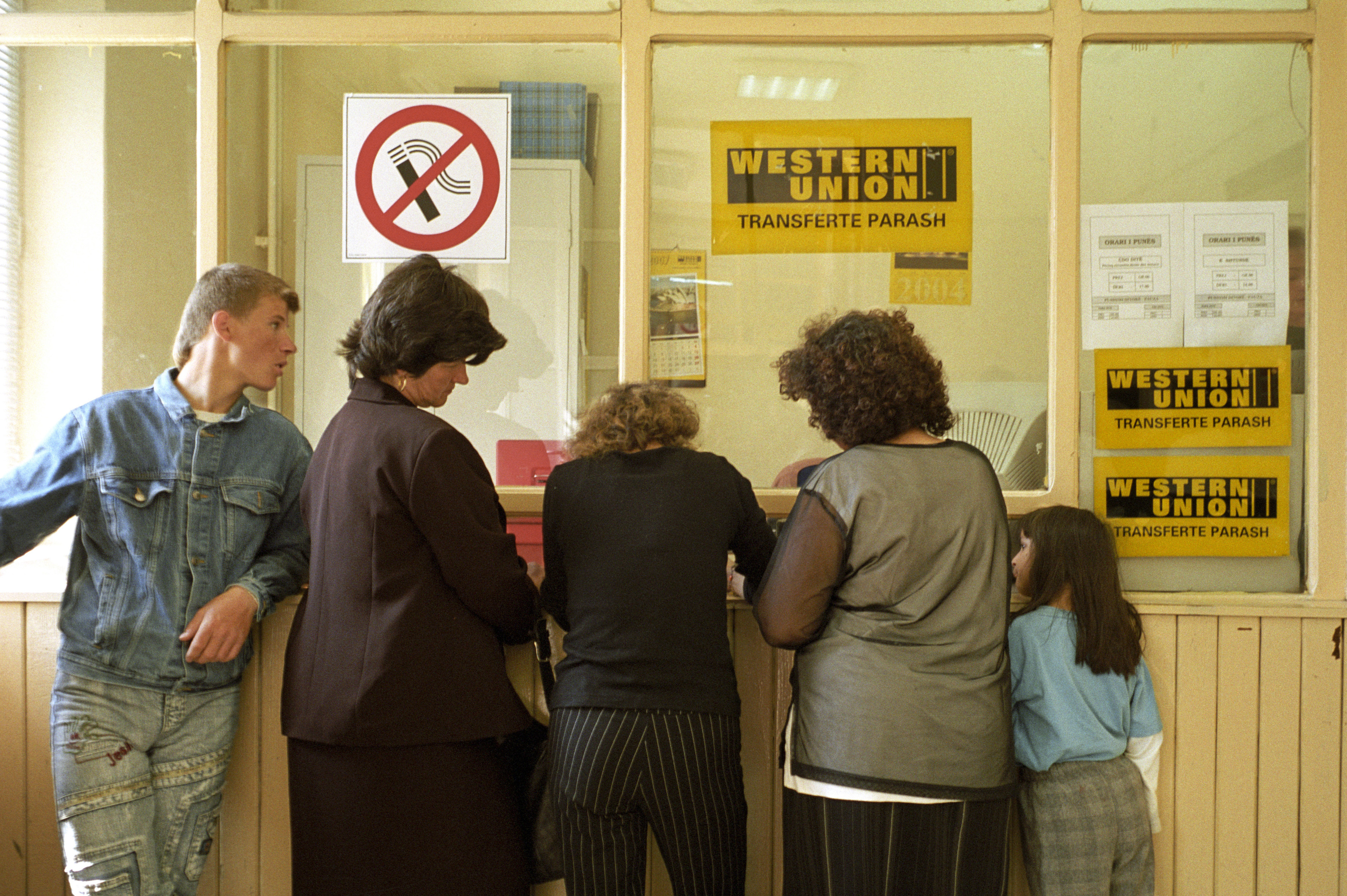Hefty charges for transferring money abroad

The number of immigrants transferring money to their relatives back home is booming. But transfer fees remain high. Young entrepreneurs from Switzerland, a country with a large diaspora, have built a tool that can compare transfer costs.
In 2013, migrants around the world sent $410 billion (CHF363 billion) back to developing countries. According to the World Bank and the International Monetary Fund (IMF), that’s four times more than ten years ago.
With transfers totalling about $20 billion a year, Switzerland lies third in the world rankings behind the US ($48.3 billion) and Saudi Arabia ($26 billion). The three countries have at least one thing in common: more than 20% of their populations are considered foreigners.
Per head, Switzerland’s immigrants send back most money to their countries of origin, or about $11,000 per person per year. In Saudi Arabia, the average amount is only a third of that and in the US just a tenth.
These differences can be explained by the origin of the immigrants, said Chris Lom, spokesman for the International Organization for Migration (IOM).
“In 2011, Switzerland had 1.7 million foreigners, according to official figures. Of these, 1.5 million were Europeans. A large number of the European immigrants in Switzerland are well qualified and therefore have easier access to better paid jobs,” he explained.
Janine Dahinden, professor of International Studies at the University of Neuchâtel and the author of several books on the subject, agreed with this assessment: “The high proportion of foreigners in Switzerland plays an important role. Moreover, Switzerland has been less affected by the global economic crisis. And many foreigners are working in lines of business that had no serious problems as a result of the crisis.”
In 2011, most money was transferred from the following five countries: United States ($48 billion), Saudi Arabia ($26 billion), Switzerland ($19.6 billion), Russia ($18.6 billion), Germany($15.9 billion).
The main recipient countries are: India ($63.8 billion), China ($40.8 billion), Mexico ($23.6 billion), Philippines ($23 billion), Nigeria ($20.6 billion).
Switzerland ranks third among donor countries but lies at the bottom of the list of recipient countries ($3.3 million per year).
Source: World Bank and Federal Statistics Office
The Kosovan diaspora
“In terms of amount, Germany, France and Spain are the most important destinations for remittances from Switzerland,” said François Broid, founder of TawiPay, a young Swiss company that is trying to shed more transparency on transfer fees.
Despite the boom which the sector is currently experiencing and in Switzerland too, the authorities have no statistics to hand.
“Seco [State Secretariat for Economic Affairs] does not collect data on these remittances and the World Bank figures are only estimates. Generally, the World Bank statistics include all transfer payments to developing countries but also to European countries. The majority of remittances from Switzerland probably go to neighbouring countries in Europe,” said Nicole Müller of Seco.
The Swiss Agency for Development and Cooperation (SDC) and the University of Neuchâtel are the authors of one of the rare studies on the topic of transfer payments and immigration, The Diaspora as an Engine for Development in Kosovo: Myth and Reality (2009), which illustrates perfectly the uniqueness of Swiss transfer payments. One-third of the Kosovan households that have received such transfers, spend the money on consumer goods, luxury items or for launching new businesses.
This spending pattern is very different from what happens in other regions. The World Bank estimates that 700 million people around the world can survive thanks to these payments and that they are an important factor in development for many countries, especially in Africa and Asia. In Tajikistan, they account for 48% of gross domestic product.
“Anti-competitive practices”
All immigrants in the world face the same question: how do we send money home to the family?
“Part of the transfer payments still takes place from hand to hand. Official and unofficial channels have always existed side by side,” said Dahinden. So you have to treat the official figures, if they exist at all, with caution, she added.
Those who do not opt for hand-to-hand transfer turn to specialised companies, such as Western Union or MoneyGram or to local banks. But the commission fees are high and sometimes make up to 10% of the total sum.
“As a global average, transfer costs accounted for about 8.85% of the transferred amount in the first quarter of 2013,” said Indira Chand, spokeswoman for the group “Prospects for Development” at the World Bank.
The main causes of these high costs are “anti-competitive practices of the companies in this industry, which conclude long-term agreements with the recipient organisations and impose on them exclusive clauses and lack of cost transparency (exchange rates and commissions), as well as the lack of legal regulations, which would protect the rights of those who send money abroad,” said Dahinden.
Targeting the immigrant community
Because of these difficulties, the brothers François and Pascal Broid have joined forces with six other young Swiss entrepreneurs to build a platform that makes it possible to directly compare the rates of different providers for the same transaction.
The internet platform called TawiPay is free and embraces 2,200 financial institutions, which together account for 60% of the global transfer volume, said François Broid.

More
Another kind of development aid
“To date, 15,000 people have already asked for our comparison platform although we have not yet launched the advertising of our product, because we are still in the beta phase,” he noted.
“We are counting on rapid development once immigrant communities get wind of the offer and an expansion of our services with the inclusion of other financial institutions and additional languages.”
The World Bank group and the Swiss Agency for Development and Cooperation (SDC) actively participate in the “Global Knowledge Partnership on Migration and Development (KNOMAD)”. This platform has set itself the goal of collecting information on migration and cash flows around the world.
With a contribution of CHF5 million for the period 2013-2017, Switzerland is the largest donor, said Indira Chand, spokeswoman for the World Bank’s Prospects for Development group.
Representatives of the United Nations, the Global Migration Group, the Global Forum on Migration and Development, the Organization for Economic Cooperation and Development (OECD) and the International Organization for Migration (IOM) are also involved.
Initiative on ice
“Given the importance of remittances for development, we must encourage more transparent transfers and improve cooperation between national and international organisations in these markets”. That what it says in the Rome Roadmap for Remittances which G20 governments signed at an international conference in Rome in November 2009.
In the same year, they launched the 5×5 initiative with the aim of reducing fees from 10% to 5% of the funds transferred, and with a deadline of five years for implementation.
With a year to go before the deadline and despite the best intentions of governments, the goal is still far off.
“It’s hard to explain why the 5×5 initiative hasn’t worked,” said François Broid. “It needs more transparency, better access to information and more active communication with the migrants. Governments of western countries, but also those from developing nations must exercise their responsibility and inform people about the existing alternatives and promote competition among providers.”
(Translated from German by Vincent Landon)

In compliance with the JTI standards
More: SWI swissinfo.ch certified by the Journalism Trust Initiative





You can find an overview of ongoing debates with our journalists here. Please join us!
If you want to start a conversation about a topic raised in this article or want to report factual errors, email us at english@swissinfo.ch.